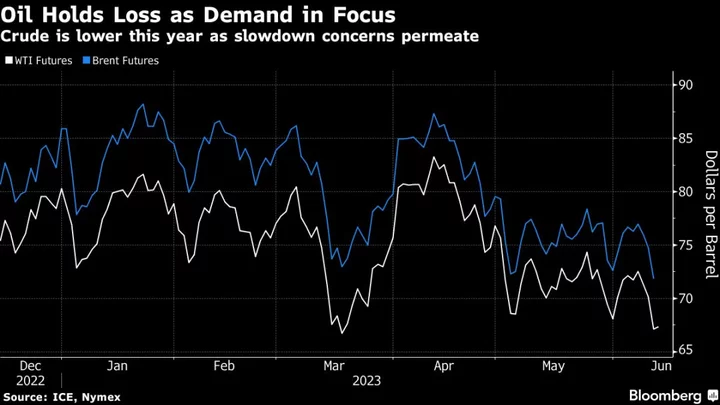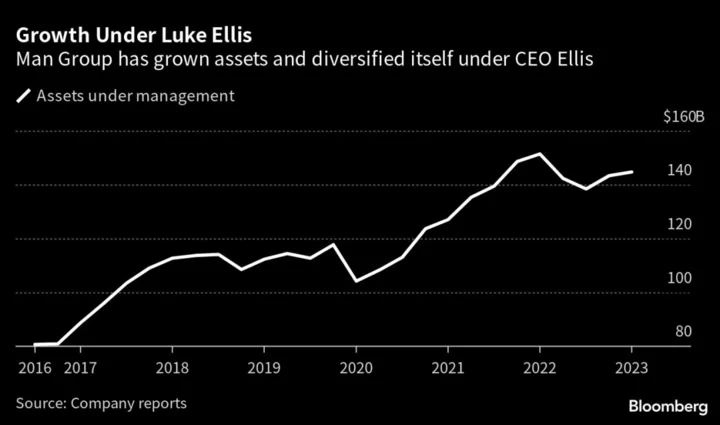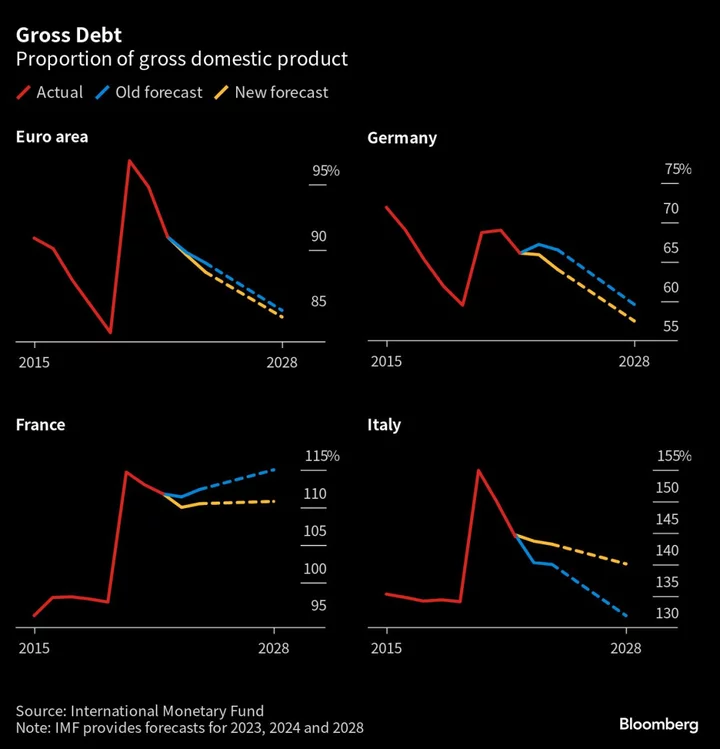Oil edged higher after dropping the most in eight weeks on technical resistance and speculation Saudi Arabia will start restoring output if prices get too high.
West Texas Intermediate was relatively subdued after a rollercoaster session on Thursday, when it rose above $95 a barrel before closing down 2.1%. Futures are still up for the week and month, and are headed for their biggest quarterly gain since March 2022 on Saudi-led OPEC+ supply cuts and critically low stockpiles at the Cushing hub in the US.
The pullback came after WTI’s 14-day relative strength index rose past a threshold signaling it may have been overbought, and against a backdrop of a risk-off mood in wider financial markets. Rapidan Energy Group, meanwhile, said the kingdom may be getting close to reviving output rather than risk a further surge in prices that could damp demand.
Until that happens, little is preventing crude’s march toward $100 a barrel as OPEC forecasts a supply deficit at 3 million barrels a day next quarter and stockpiles at the largest US storage hub have dwindled to near-critical levels. The supply shortages are reverberating through markets from Asia to the Middle East and Europe, while demand is proving resilient.
“The tight markets continue to inflict the tyranny of exceptionally high oil despite slowdown risks,” said Vishnu Varathan, head of economics and strategy at Mizuho Bank Ltd. “But a breather from recent surges is not outlandish given a harder-to-predict reaction to swirling risks.”
China’s Golden Week holiday, from Friday through Oct. 6, is also expected to boost consumption as more people travel within and from the world’s biggest oil importer.
Prompt timespreads for WTI and global benchmark Brent are deep in bullish backwardated structures. Options trading is also showing concerns about bigger price swings.
To get Bloomberg’s Energy Daily newsletter into your inbox, click here.









